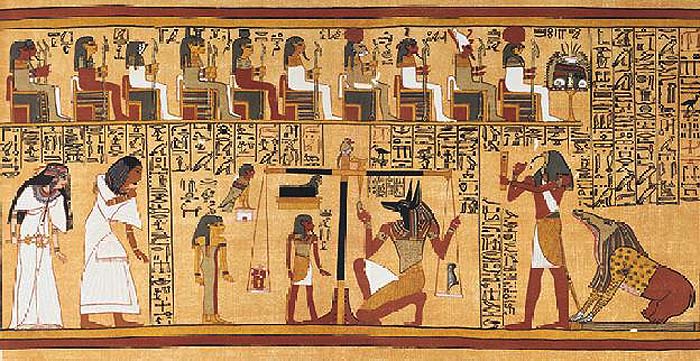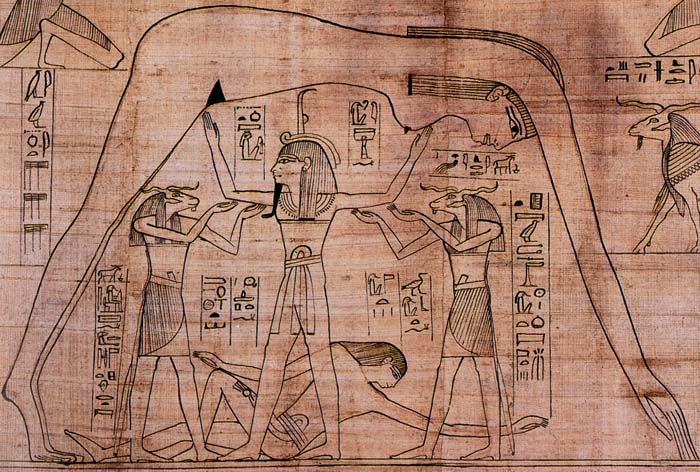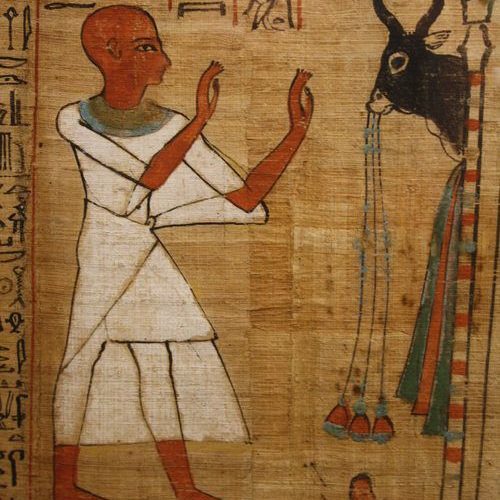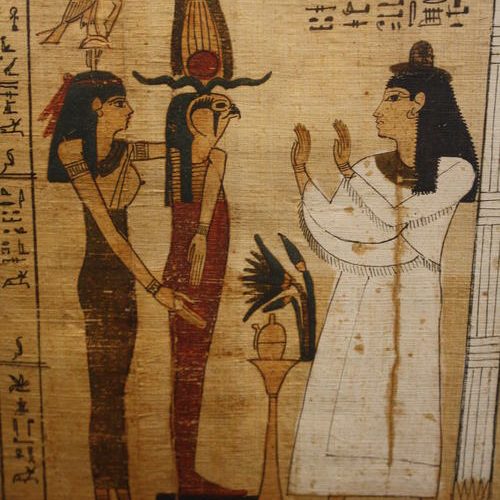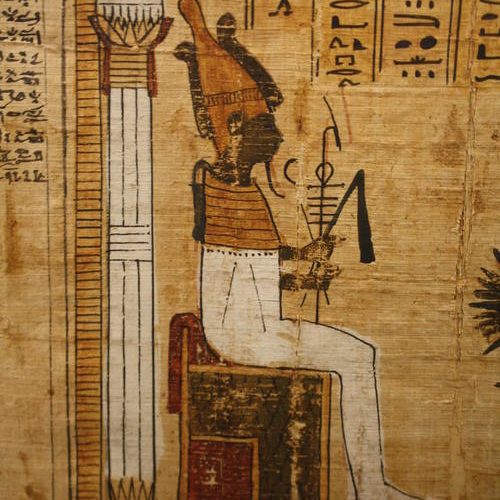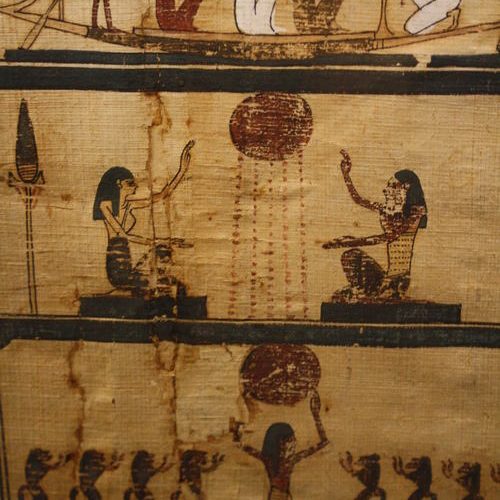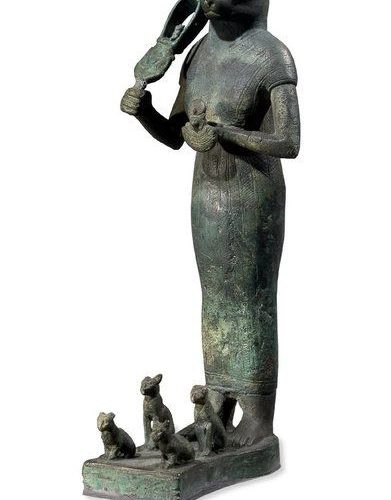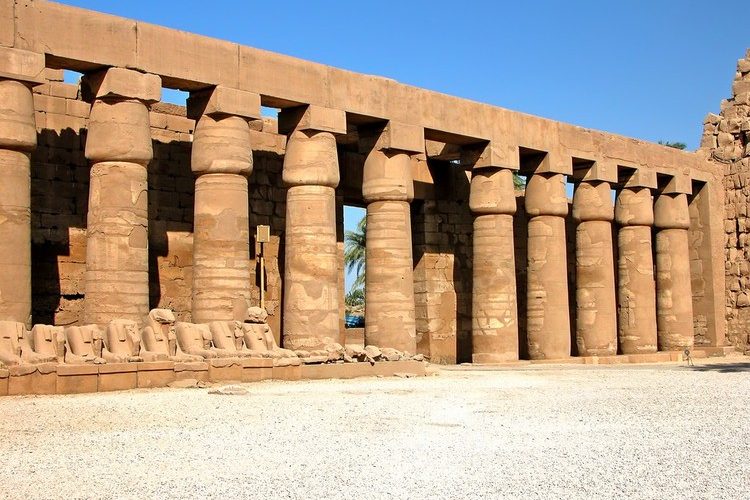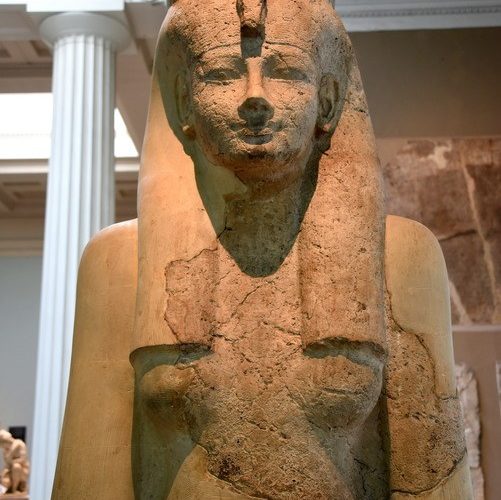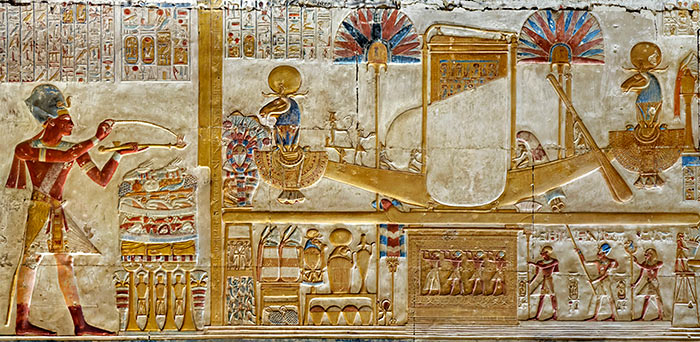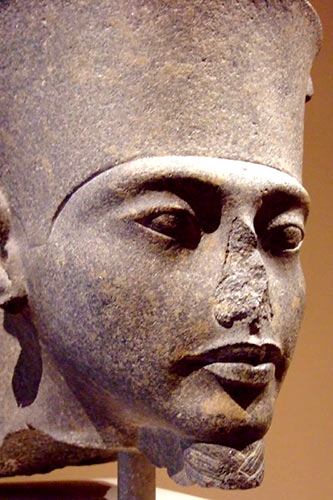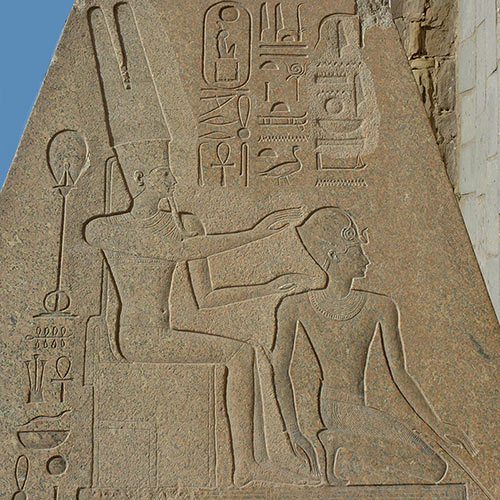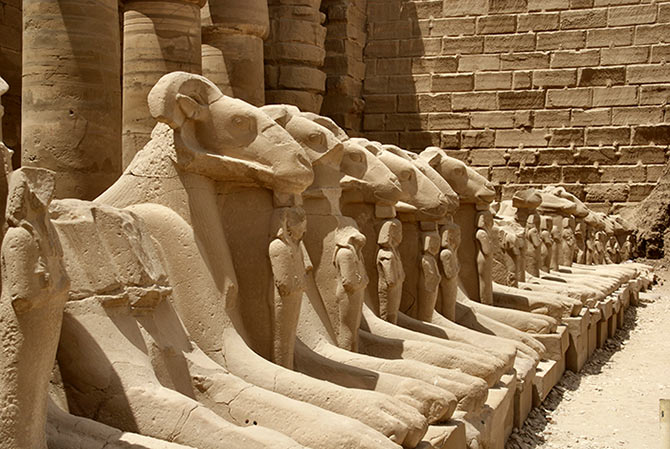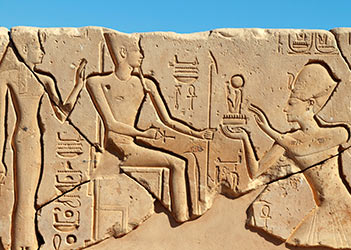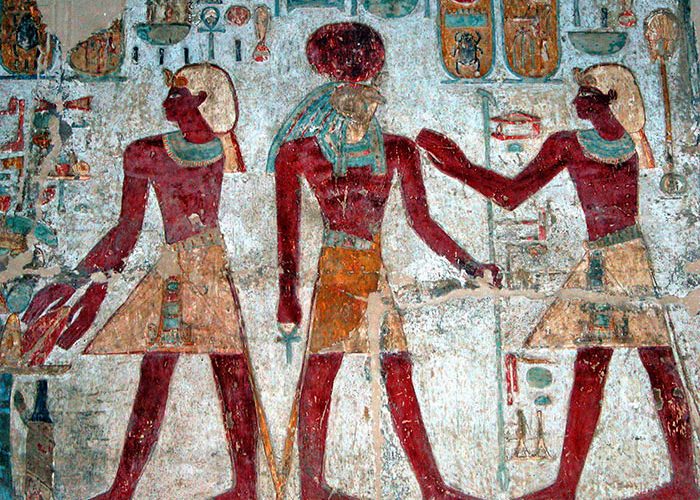
First Intermediate Period (2181 – 2055 BC)
First Intermediate Period (2181 – 2055 BC) The First Intermediate Period began sometime after the death of Pepi II, who had lived to be into his 90s, which meant that he had outlived his heirs. That caused problems with the succession, and the growing power of the provincial governors exacerbated matters. © Udimu – Soldier Figurines […]
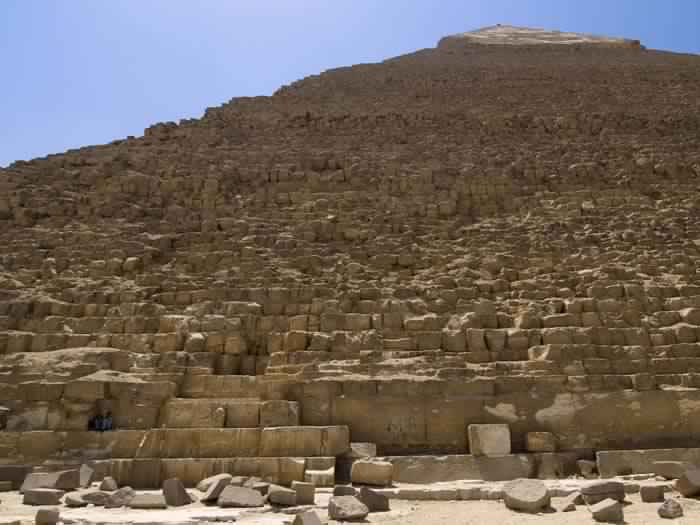
Design, Dimensions, and Specifications
Design, Dimensions, and Specifications Constructed between 2589 and 2504 BC, although estimated dates vary somewhat, the Great Pyramid of Giza is believed to have been designed as a tomb for the Egyptian Pharaoh Khufu, also known as Cheops. Its designer is thought to have been his vizier Hemon; a vizier was the highest official in the land […]

Ancient Egypt’s Upper Class
Members of the king’s royal court enjoyed similar comforts to the king, although with little former responsibilities. Egypt’s nomarchs lived comfortably but their wealth depended on the wealth and importance of their district. Whether a nomarch lived in a modest home or a small palace hinged on the wealth of a region and the personal […]
Religion in Ancient Egypt
Religion influenced nearly every aspect of the ancient Egyptians’ lives. As it was very important to them, they were bound by tradition and unwilling to change. The history of ancient Egyptian religion is rooted in Egypt’s prehistory and it lasted for 3,000 years. With the exception of the Amarna Period (when King Akhenaten practiced monotheism), […]
Egyptian Book of the Dead
The Egyptian Book of the Dead is a collection of spells which enable the soul of the deceased to navigate the afterlife. The famous title was given the work by western scholars; the actual title would translate as The Book of Coming Forth by Day or Spells for Going Forth by Day and a more apt translation to English would be The Egyptian Book […]
Religious Practice in Egypt
There were no religious services in Egypt corresponding to worship services in the present day. The priests served the gods, not the people, and their job was to administer to the gods’ daily needs, recite hymns and prayers for the souls of the dead, and engage in rituals which ensured the continued goodwill of the […]
The Eeligion Afterlife
Egyptians were very concerned about the fate of their souls after death, and built tombs, created grave goods and gave offerings to preserve the bodies and spirits of the dead. They believed humans possessed ka, or life-force, which left the body at death. To endure after death, the ka must continue to receive offerings of […]

Battling the Gods: Atheism in the Ancient World
Was atheism a product of enlightenment philosophy? Tim Whitmarsh argues it is not. The classicist focusing on Ancient Greece and Rome argues that though evidence is scant in places, there is more than enough leads for historians to ascertain whether atheism has been prevalent since antiquity. Under the tutelage of Tim Whitmarsh, the reader has […]
Cosmology & Religio
The religion of Ancient Egypt lasted for more than 3,000 years, and was polytheistic, meaning there were a multitude of deities, who were believed to reside within and control the forces of nature. Religious practices were deeply embedded in the lives of Egyptians, as they attempted to provide for their gods and win their favor. […]
Amun | King of the Egyptian Gods
Among all the multitude of Egyptian deities, the god Amun was considered to be the king of the gods, a supreme creator-god. He was the ancient Egyptian god of fertility and life. While most Egyptian gods were ‘born’ at various points in the history of the Egyptian nation and many floated in and out of […]




